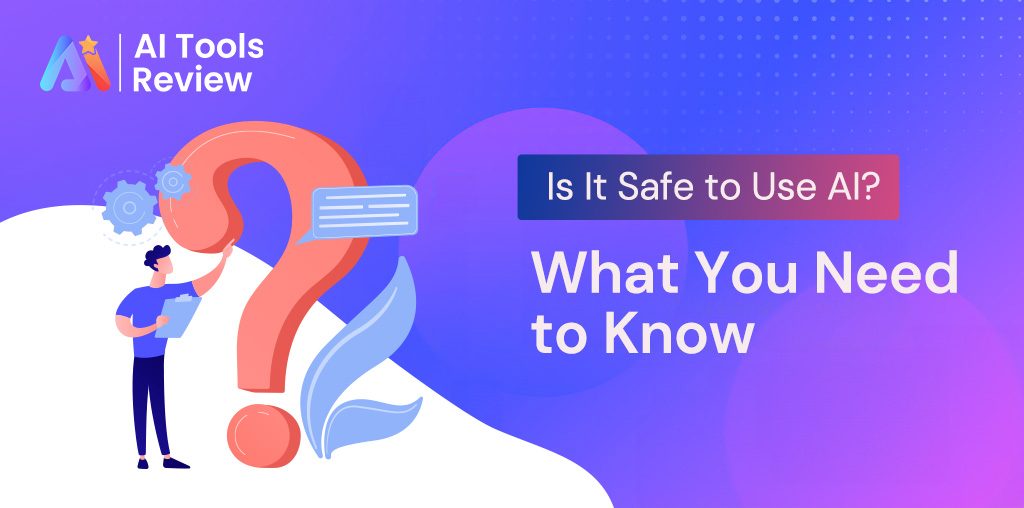Artificial intelligence is now woven into the fabric of our everyday lives. From smartphone assistants to content generators, AI tools are reshaping how we interact with technology. Yet as these powerful systems become more accessible, many wonder: Is it safe to use AI? This post examines the key safety considerations you should understand when using AI technologies in both personal and professional contexts.
Understanding AI Safety Risks
AI safety encompasses several dimensions that need careful consideration:
Data Privacy Concerns
When you use AI tools, you’re often sharing your data with the systems that power them. This raises legitimate privacy questions:
- What information is being collected from your interactions?
- How is your data being stored and protected?
- Is your data being used to train models that will be used for other purposes?
Many AI companies have improved their privacy policies, but it’s essential to read terms of service and understand what you’re agreeing to before using AI platforms.
Accuracy and Reliability
AI systems aren’t infallible. They can produce errors or “hallucinate” information that sounds plausible but is factually incorrect. This is particularly important when using AI for:
- Research and information gathering
- Medical or legal advice
- Business decision-making
- Educational purposes
Always verify critical information from AI outputs with trusted sources before making important decisions based on them.
Security Vulnerabilities
As with any technology, AI systems can have security weaknesses. Adversarial attacks—where malicious actors deliberately feed misleading inputs to manipulate outputs—remain a concern. Additionally, AI tools might inadvertently reveal sensitive information if not properly designed.
Ethical Considerations
The ethical use of AI involves understanding potential biases in AI systems, ensuring fair treatment across demographics, and considering the broader societal impacts of automation and AI deployment.
Best Practices for Safe AI Use
Despite these concerns, AI can be used safely with the right approach:
- Start with reputable providers Choose AI tools from established companies with clear privacy policies and security practices.
- Be mindful of what you share Avoid entering sensitive personal information, proprietary business data, or confidential materials unless you understand how that data will be handled.
- Maintain a critical perspective View AI outputs as suggestions rather than absolute truths, especially for complex topics.
- Keep humans in the loop Use AI as an assistant, not a replacement for human judgment, particularly for consequential decisions.
- Stay updated on AI developments As the field evolves rapidly, keeping informed about new capabilities and risks is valuable.
Industry-Specific Safety Considerations
For Businesses
When implementing AI solutions in your organization:
- Establish clear policies for AI use
- Train employees on appropriate use cases and limitations
- Regularly audit AI systems for bias and accuracy
- Consider the impact on customer trust and employee roles
For Content Creators
If you use AI for content creation:
- Disclose AI-generated content where appropriate
- Review and edit AI outputs to ensure accuracy and quality
- Be aware of potential copyright and originality issues
For Consumers
When using consumer AI products:
- Read privacy policies before creating accounts
- Use strong, unique passwords for AI services
- Be cautious about connecting AI tools to other accounts
- Consider using anonymized queries for sensitive topics
The Future of AI Safety
The AI safety landscape continues to evolve. Organizations like the AI Safety Institute, industry leaders, and regulatory bodies are working to establish standards and guidelines. As AI becomes more powerful, collaborative efforts between developers, users, and regulators will be crucial in ensuring these tools benefit humanity while minimizing risks.
Wrapping Up
Artificial intelligence presents tremendous opportunities for innovation, efficiency, and problem-solving. While legitimate safety concerns exist, informed and thoughtful use of AI can help mitigate many risks. By understanding potential issues, following best practices, and staying engaged with developments in the field, you can harness the benefits of AI while protecting yourself, your data, and your organization. The key is not to avoid AI altogether but to approach it with appropriate caution and awareness—much like any powerful tool we incorporate into our lives.


